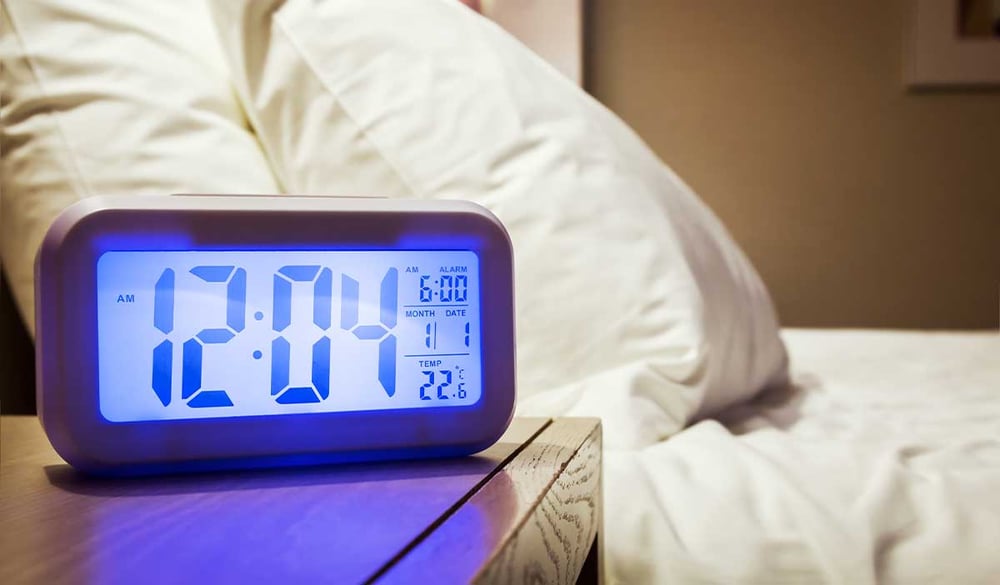As you get older, the harder it may be for you to make it through a full night’s sleep without having to go to the bathroom at least once.
This situation is normal—and it’s quite common—for men and women over the age of 40. However, if you’re waking up four or five times throughout the night to go to the bathroom, then it’s time to consider seeing your medical provider.

Learn about poor sleep’s side effects
What is nocturia?
Experiencing symptoms of an overactive bladder at night, often referred to as nocturia, can become a challenging condition when you want to get a restful night of sleep.
While age is certainly a related factor, some other conditions that can cause of nocturia are include urinary tract infections, medication side effects, and consuming caffeine and alcohol before you go to bed, as well as other underlying health conditions, including:
- Type 1 or Type 2 diabetes
- Congestive heart failure
- Sleep disorders, e.g., sleep apnea
- Bladder inflammation
Symptoms of an overactive bladder
If you have one of the above health conditions, it can be easy to make the connection as to why you’re experiencing an overactive bladder at night.
However, if you don’t have any underlying health conditions, be aware of the following symptoms:
- Feeling a sudden urge to go to the bathroom
- Involuntary loss of urine
- Urinating frequently, usually more than eight times in 24 hours
- Feeling like your bladder is full, even when it is not
Ways to prevent nocturia
If your overactive bladder is not the result of an underlying health condition, then making lifestyle changes is a great step in the right direction.
Some tweaks that often help include:
- Avoiding drinking caffeinated and alcoholic beverages, especially late in the evening
- Maintaining a healthy weight
- Eating fewer hard-to-digest foods, like dairy products
- Integrating exercise as part of your daily routine
- Limiting your intake of fluids within three hours of bedtime
Find out how to get more restful sleep
When to see a urologist
A urologist is a physician who specializes in the study or treatment of the functions and disorders of the urinary system.
A urology specialist will analyze your medical history, evaluate your current condition, listen to your problems and concerns, and—in the end—provide you with a diagnosis and treatment plan for your nocturia.
When you make an appointment with a urologist, be prepared to answer questions about your current situation, such as:
- When your frequent urination at night started
- How many times you wake up each night to go to the bathroom
- How much you urinate each time
- How is making frequent trips to the bathroom hurting your ability to get a good night’s sleep
Urologists often encourage—and recommend—that their patients keep a diary to log their nighttime urination for at least a week prior to your appointment.
The answers to these questions can help your urologist to identify your problem.
Urology at Logansport Memorial Hospital
 You don’t have to live with the urge to go to the bathroom multiple times every night due to an overactive bladder.
You don’t have to live with the urge to go to the bathroom multiple times every night due to an overactive bladder.
Our board-certified urologist, Dr. Stephen Beck, is currently accepting new patients.
He can help with nocturia, as well as a wide variety of issues related to the bladder and kidneys.
“My goal is to bring specialized care closer to home and to ease the burden for all of my patients facing complicated urologic conditions.”
—Dr. Stephen Beck
Note: You can also set up an appointment with Dr. Beck by calling (574) 753-2222.
You might also like:



